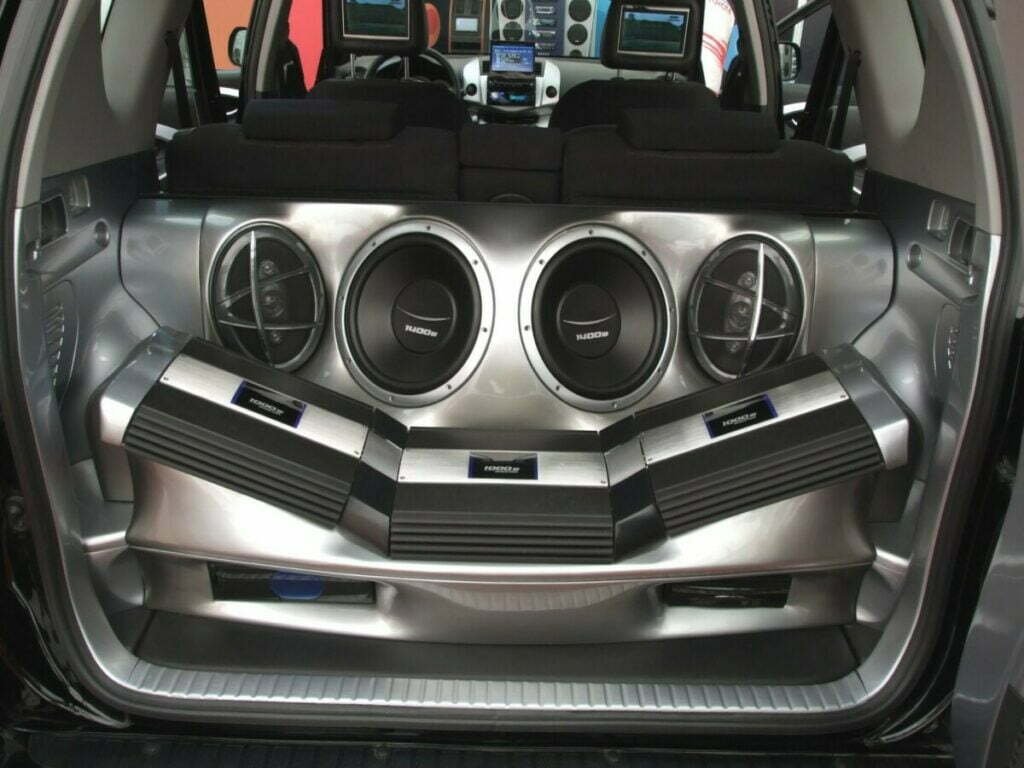These days, cars are built with incredible sound systems, and especially with the addition of a new subwoofer, music experiences on the road can be life-changing. Even with these advancements, there are other ways to further progress your listening experience while driving one of which is provided by sound deadening.
Sound deadening a car does increase bass, improving the listening experience. The procedure seals gaps found in windows and doors, decreasing rattling caused by outer parts like the license plate or body panels. This increases the ear’s ability to enjoy music and bass without distracting sounds.
Through the use of sound deadening, additional noise from the car itself and the noises outside of it is decreased. The process closes gaps in the car that allow sound to enter, and reinforces other areas to permit even less sound into the vehicle.
Your ears have fewer distracting sounds and so you can listen solely to the music, with fewer adjustments on your bass or other settings on your audio system.
What is Sound Deadening?
Sound deadening is a way to decrease the amount of outside noise entering the interior of a car. It dampens sounds from the car’s exterior and body, rattling, road noise, and even vibrations.
With less noise from the outside of the car, it is easier to talk at a normal level amongst passengers, and increases the bass and sound system experience inside!
A flexible sheet o elastomeric butyl often acts as the dense layer for sound deadening. A sticky mixture is added to the flat surfaces of metal on the car.
Together, this increases the car’s mass and dampens sound energy, preventing it from traveling through the car and from vibrating the body of the car as well.
Most auto-producing companies install at least a small amount of sound-deadening materials on cars. These manufacturers often add some of the materials to the car’s floor and door panels.
They do, however, limit the use of these materials because they can often be expensive and increases the weight of the vehicle as well.
How Does Sound Deadening in a Car Increase Bass?
These sound-deadening panels and materials increase the car’s mass and decrease the number of sound vibrations and outer noise that can enter the interior of the vehicle.
Without competing for noise from the vehicle rattling, road noise, and traffic sounds from other cars, the full strength of a car’s audio system is enjoyed.
In most cars, SPL is lost or lowered by this background noise. To hear the music at a better level, passengers are required to increase the volume, always losing at least a portion of the audio potential.
Denser layers in the car’s body and the filling of holes that lose the desired sounds and welcome outside noise, sound deadening provides an increased listening experience.
The strength of bass and other settings in the audio of your car can be enjoyed more fully without competing sounds.
How Does Bass Work?

Bass refers to the low, vibrating sounds in music or audio. It corresponds with anything up to 150Hz. oscillations per second. They are most clearly produced by subwoofers and high-quality speaker systems designed for bass production.
Boosting the bass in an audio system or experience will not add new sounds, but it will increase the low bass sounds that already exist in the music.
Because they are lower sounds and most speakers are designed to favor higher frequencies, bass can often be hardly recognizable, and even lost in many audio systems.
Regardless of the type or volume of music you enjoy, the implementation of true bass production will increase your listening experience and allow you to enjoy the music at the level it was created.
Many drivers enjoy good bass at this increased level while listening in their cars. To improve their higher frequency car audio, many people purchase subwoofers, which are speakers designed specifically to produce bass more cleanly and fully.
Benefits of Sound Deadening in a Car

While sound deadening your car clearly increases the ability to enjoy good bass, there are many other benefits that come with this upgrade.
Comfort
After a long and stressful day, the last thing anyone needs is to hear loud car horns and traffic sounds from other vehicles on the road. A calm and enjoyable ride home with the amount of noise you choose can be incredibly soothing and peaceful for many drivers.
Those who prefer a quiet ride home can enjoy a calm interior. Others who prefer music can experience their playlist without loss of sound quality and happily listen on the ride home free of outside distractions.
Reduced Car Noises
While some cars are louder than others, all cars produce a variety of exhaust, tire, moving, and shifting noises. Drivers are often well-accustomed to the sounds of the vehicle they control, but loud vehicles on the road can be incredibly annoying.
Sound deadening materials increase density in the areas where sound most often enters the vehicle. This added layer will limit the strength and amount of noise from other vehicles that will reach you inside your car.
Focused Driving
As mentioned above, the noises of other vehicles and other things you drive past are limited by sound deadening. The gaps where noise most often enters the car are covered and an additional layer of noise blocking is installed.
With fewer distracting noises, it is easier to focus on the safe management of your vehicle. You are able to keep your mind clear of this potentially dangerous distraction, keeping your mind, ears, and eyes on the road.
Increased SPL Audio Quality
Just like recording studios utilize soundproof rooms, sound deadening in your car can increase the quality of the audio. Both of these locations are able to provide listeners and singers with an environment free of large distractions. In a car with sound deadening, you are able to enjoy increased SPL or sound pressure levels.
Privacy
The use of sound deadening on your vehicle also improves privacy! In the same way, these materials limit sound from entering the vehicle, sounds within the vehicle are also kept from leaving for the most part.
This will give you increased privacy when conversing or listening to music in your car, as it prevents other drivers or pedestrians from hearing interior events.




